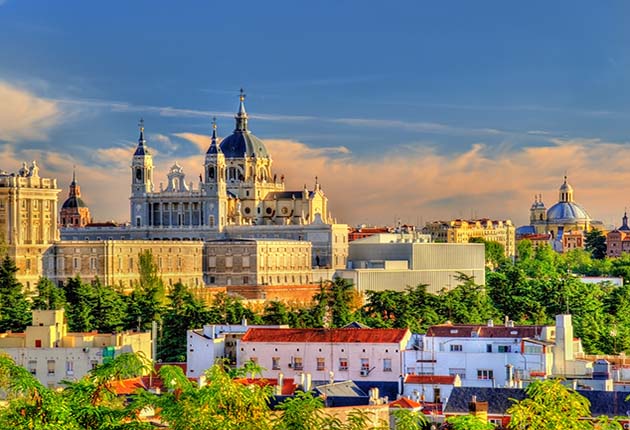City Guide: Madrid

The central Spanish city of Madrid boasts amazing historic architecture, blended with a thoroughly modern infrastructure. It’s culturally diverse and a real melting pot of nationalities, which lends a certain vibrancy to daily life. With a thriving and modern art scene, two renowned football teams, fantastic restaurants and a strong love of fashion, there is plenty here to interest expats.
Its location means that it is a long way from the coastline that many British expatriates seek when relocating to Spain, however it does offer a high standard of life and an enviable work/life balance. It’s also a good place for career progression, as it’s considered the financial centre of Southern Europe and is home to many major company headquarters in all sectors. It’s not as frantic as other European cities, which is why it’s a popular option for UK-based workers seeking international opportunities.
City life
While the landlocked central location can be a downside, it does have its advantages too. Madrid is a good base for travelling to other parts of Spain and even Europe, with good international links. Travelling around the city itself, the Madrid Metro is one of the best public transportation systems in the world and most people use it. Driving in the city is a stressful and thankless pursuit, so not many expats will bother. The long underground network covers almost every direction and makes commutes straight forward.
Working life can take some getting used to; it’s far more laid-back than other European destinations, including London. However, business is taken seriously and the relaxed atmosphere doesn’t equate to a lack of efficiency. Business hours are typical of Spain, with later starts and later finishes, but with long lunch breaks that are often used for discussing deals in depth and at a leisurely pace.
Family matters
For those moving to Madrid with family, it’s reassuring to know that it has one of the best healthcare systems in Europe. The public system is available to employees in Spain, and there are excellent private insurances available if preferred. The public system is free or subsidised, and there are usually English-speaking staff available. Expats need to have a social security card and then a medical card to be able to access these services. Private healthcare plans are common among expats, as it cuts down on waiting times and offers more choice, with world-class facilities.
If there are school-age children to consider, then Madrid is home to a large number of private, international schools. Some are bilingual, but there are also many that follow the British curriculum for a consistent approach to learning. These schools also attract many Spanish pupils looking for an international education, so there can be long waiting lists and the fees are high.
The cost of living is lower than in other European cities, but this is also reflected in salaries, which are not the highest in Europe. When looking for somewhere to live, it is best to look a little out of the city itself for a family home, as the centre is made up of practical and typically city-like apartment blocks. Consider a property with air conditioning, as it can get hot in the summer months and there is no sea air to take the edge off.
Madrid is a great option for British expats looking for a city that balances work opportunities with culture and a welcoming expat community.



